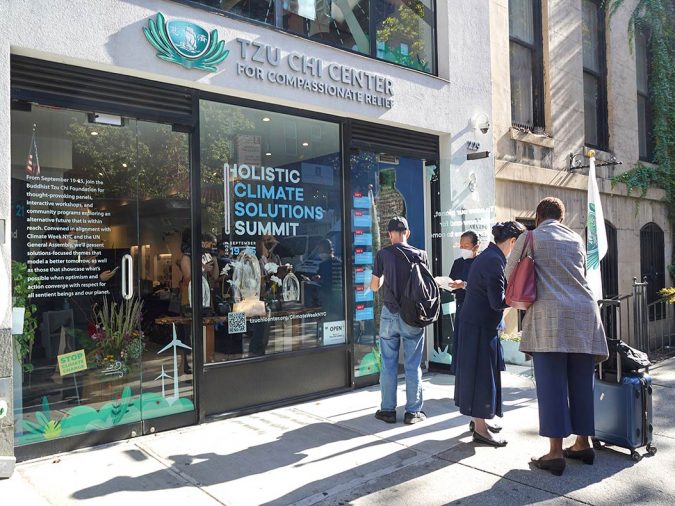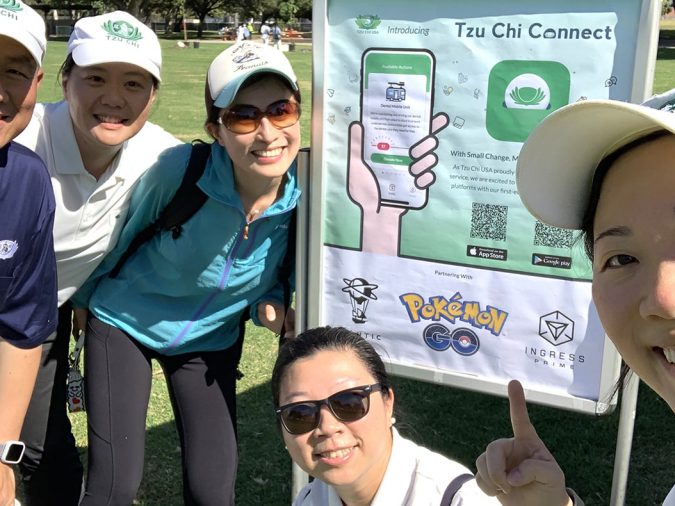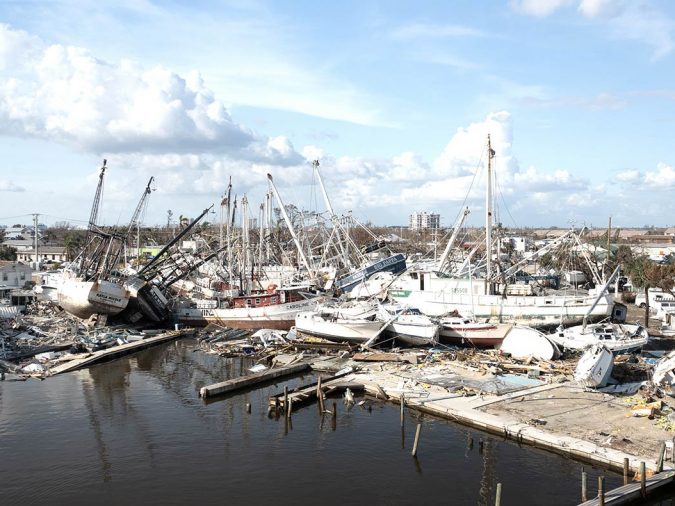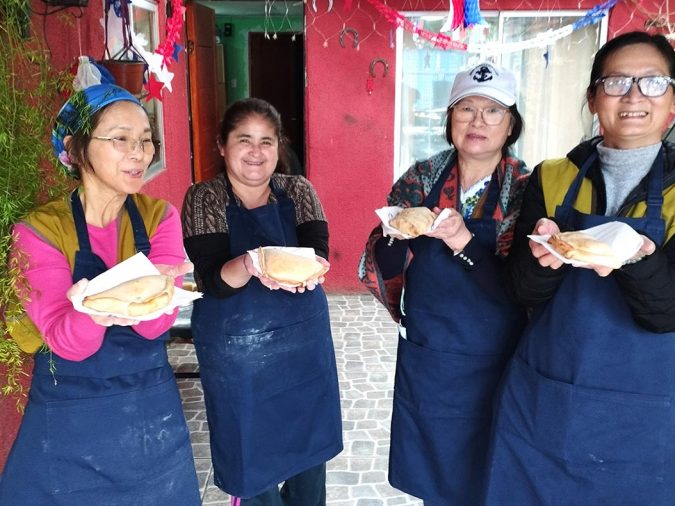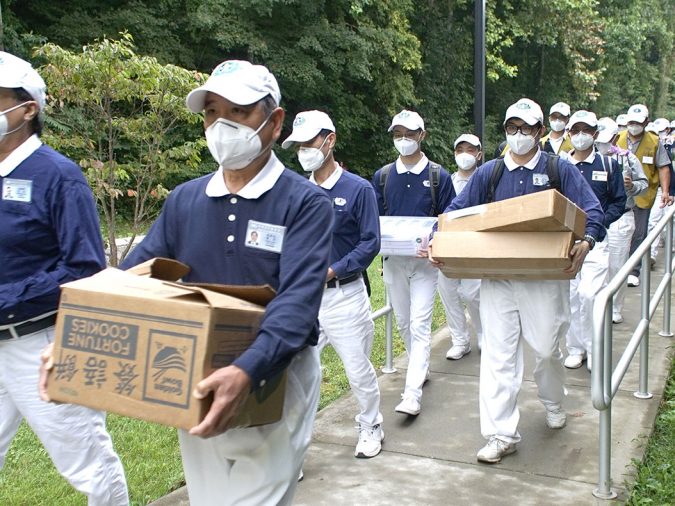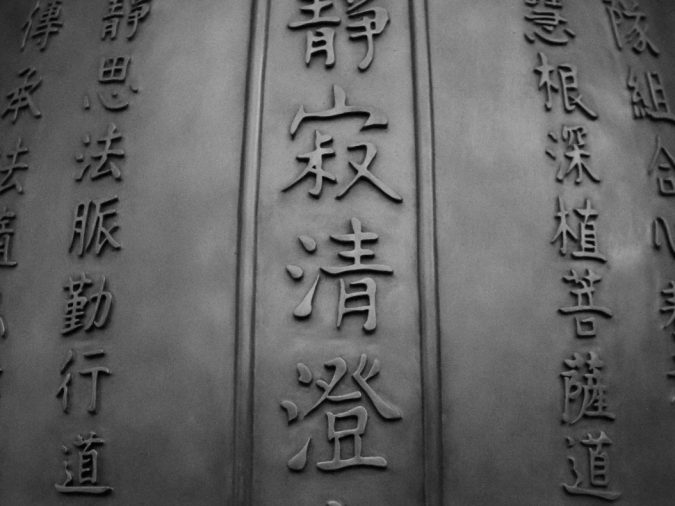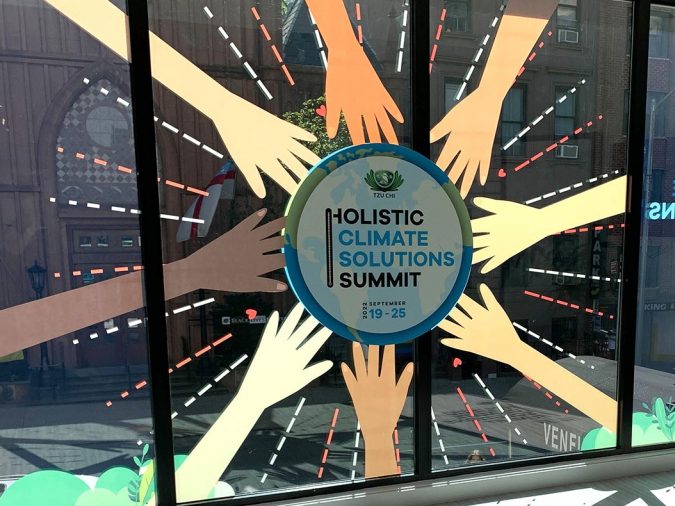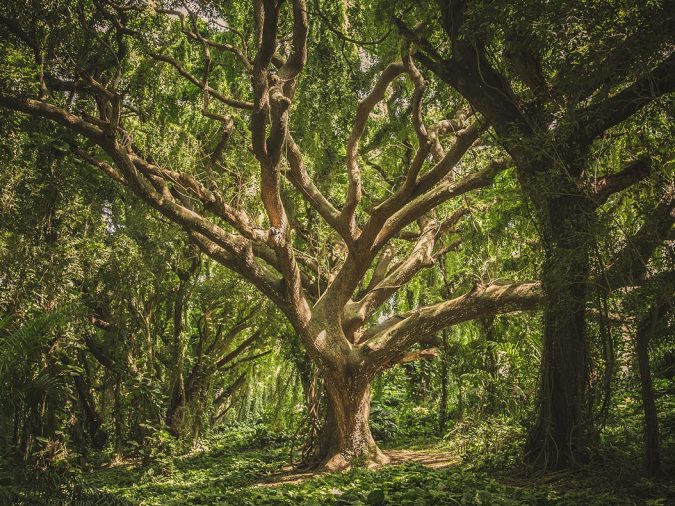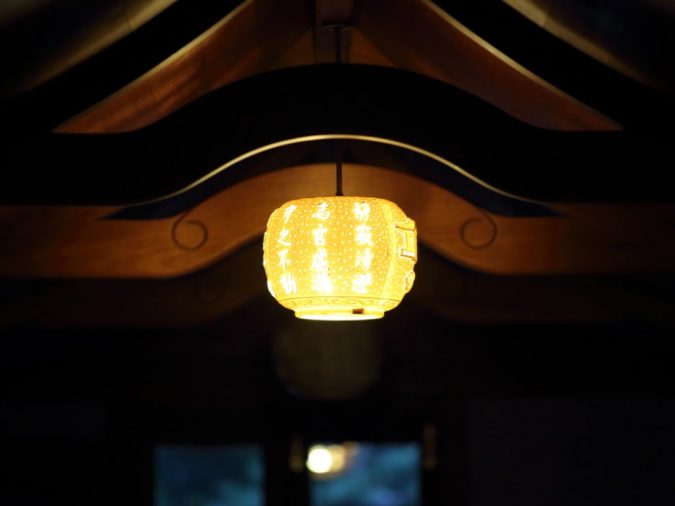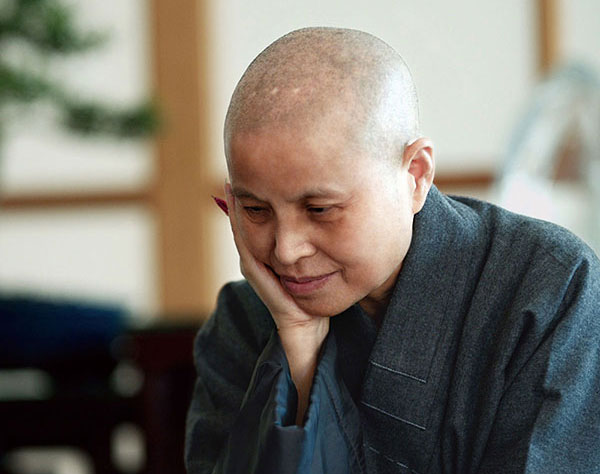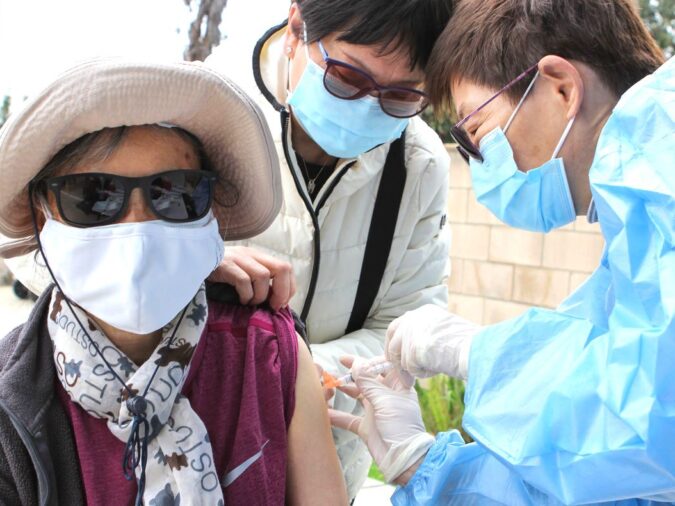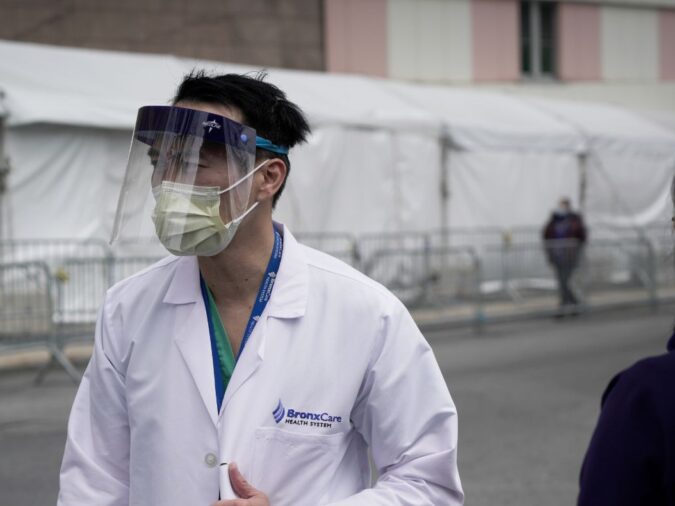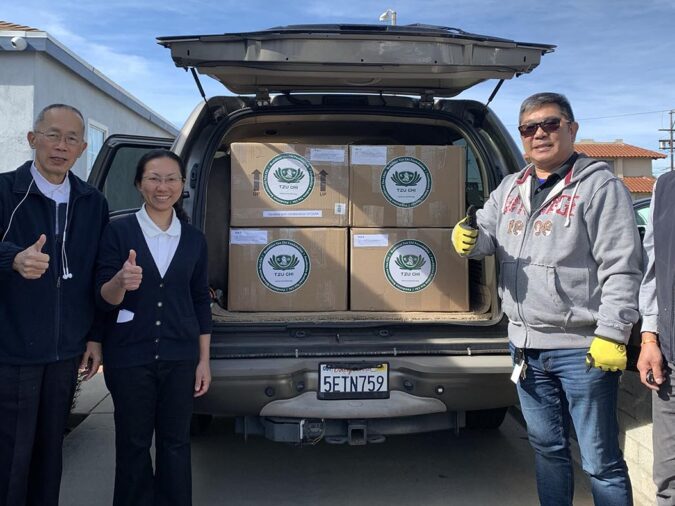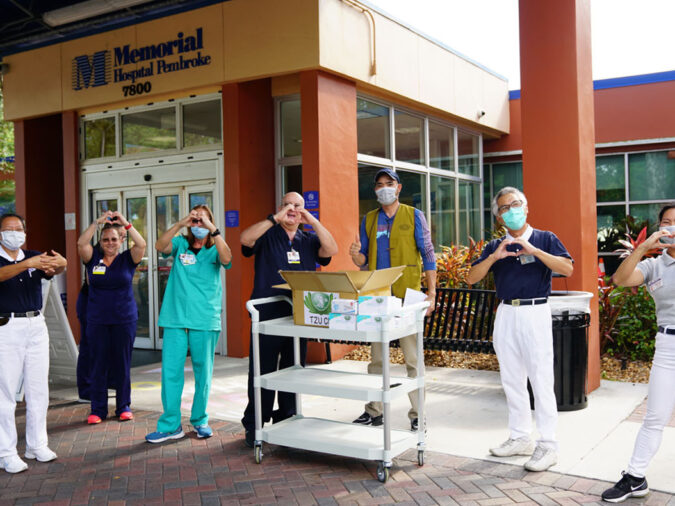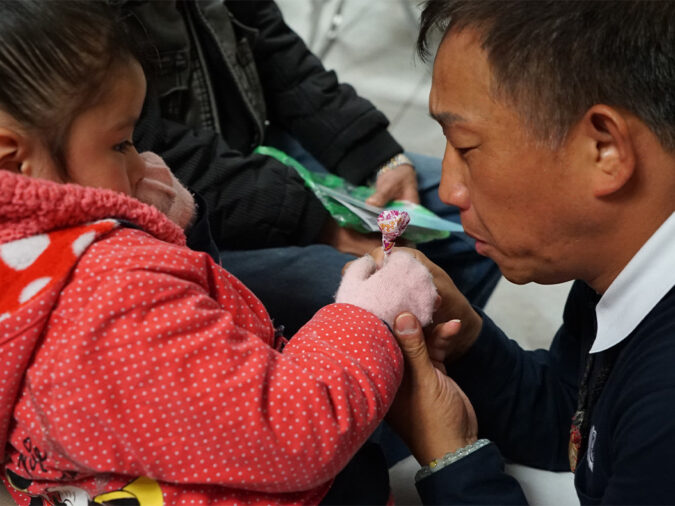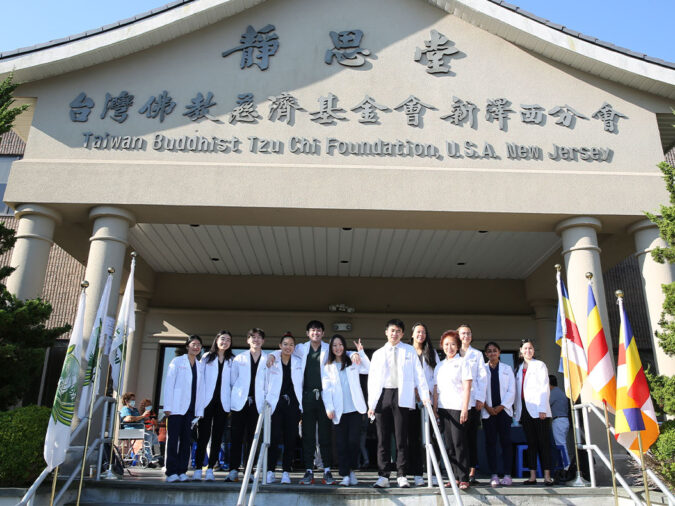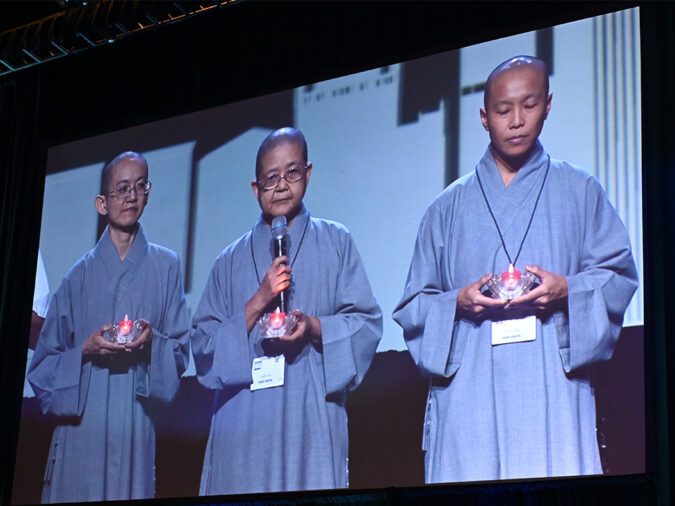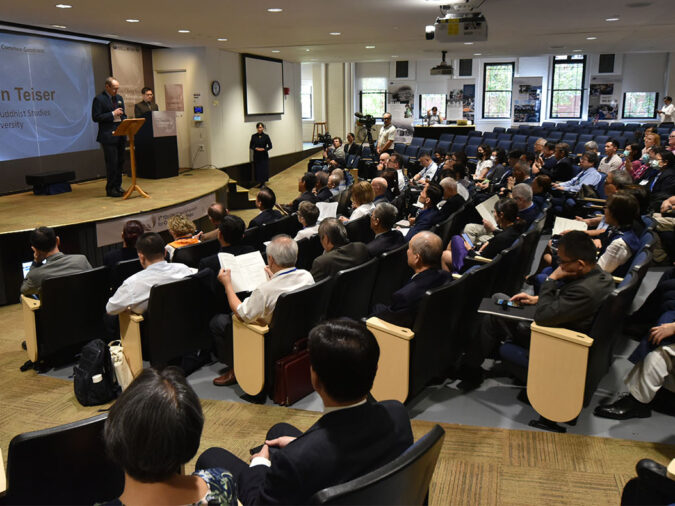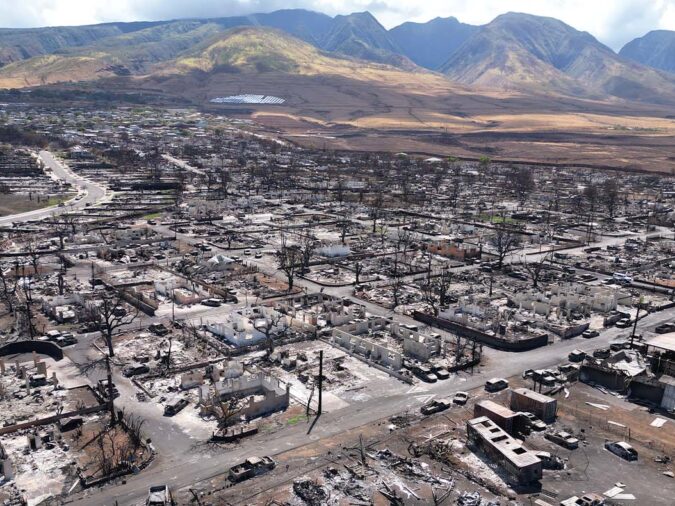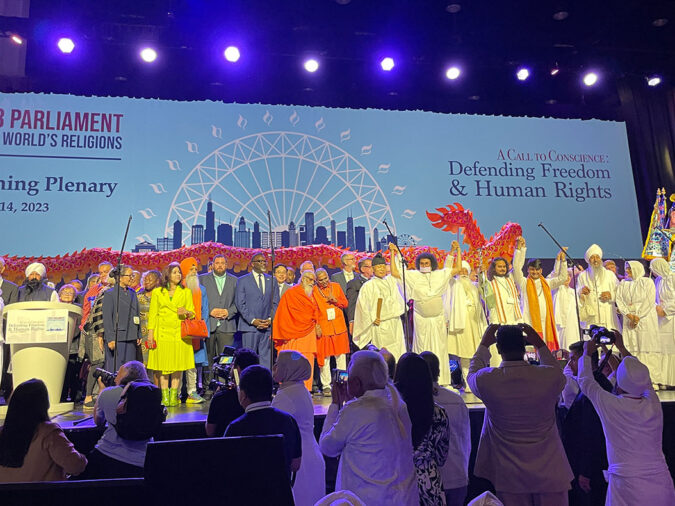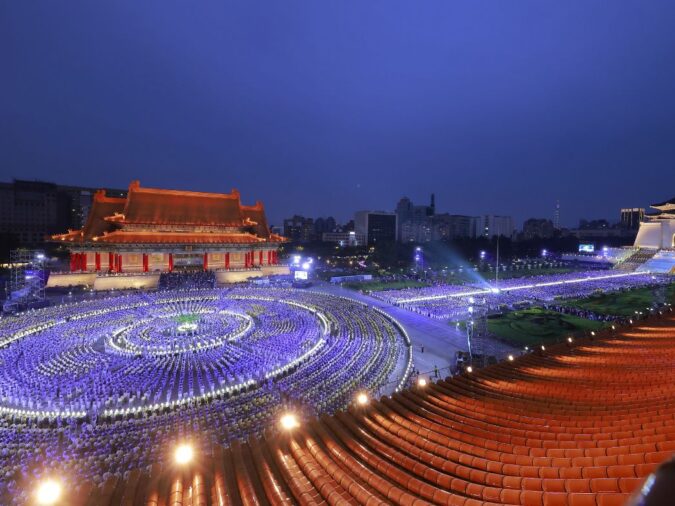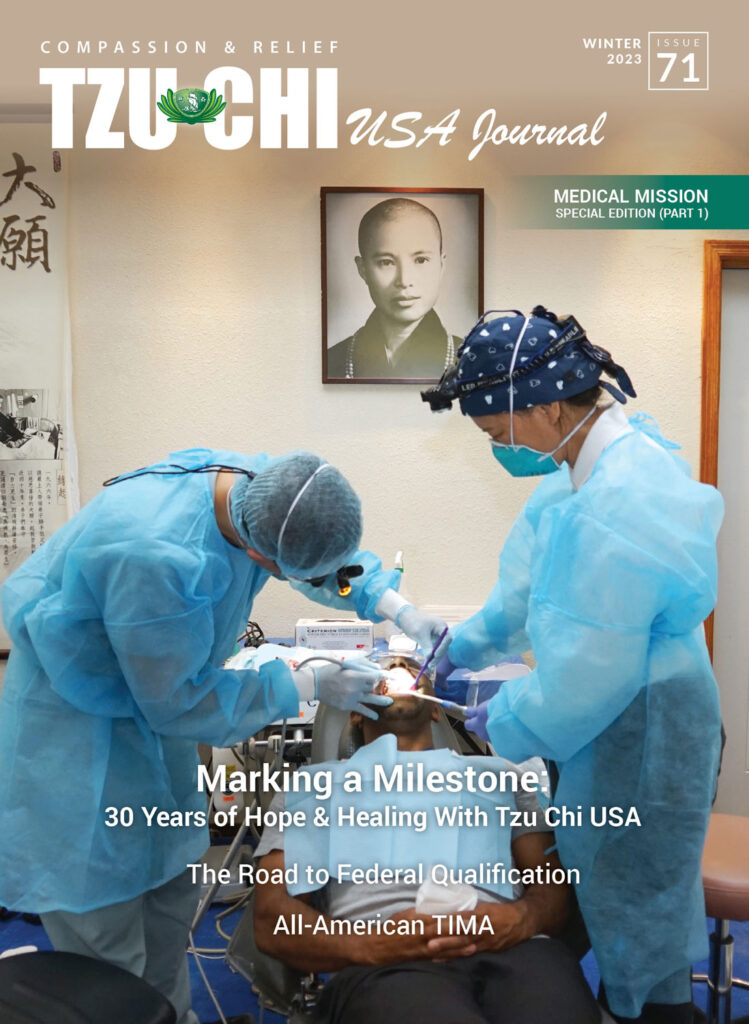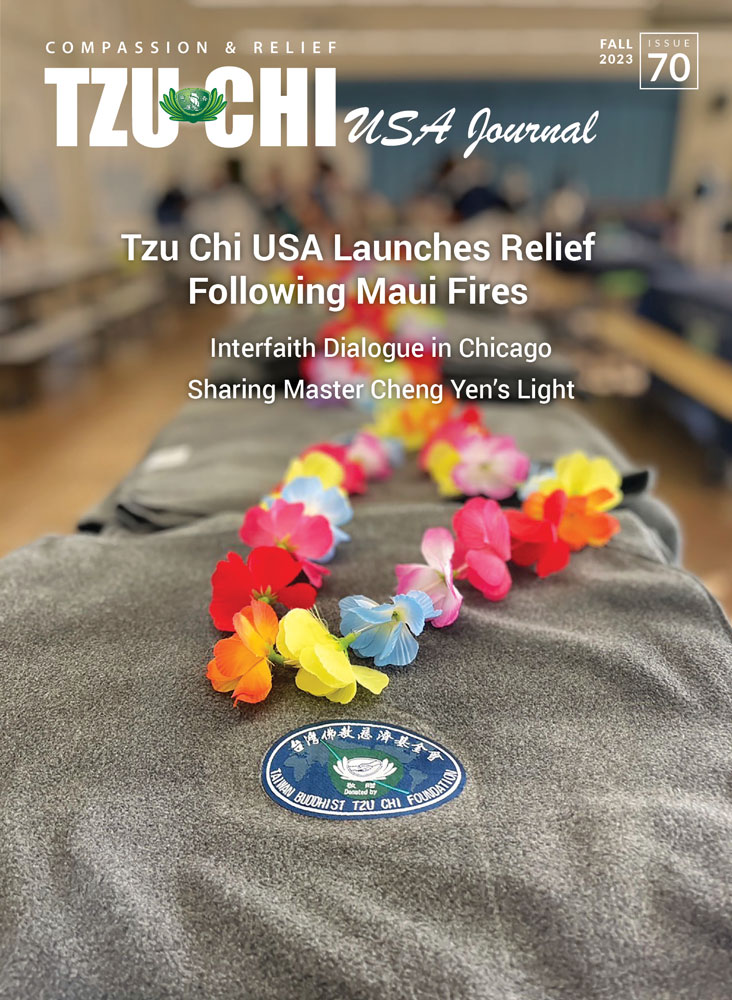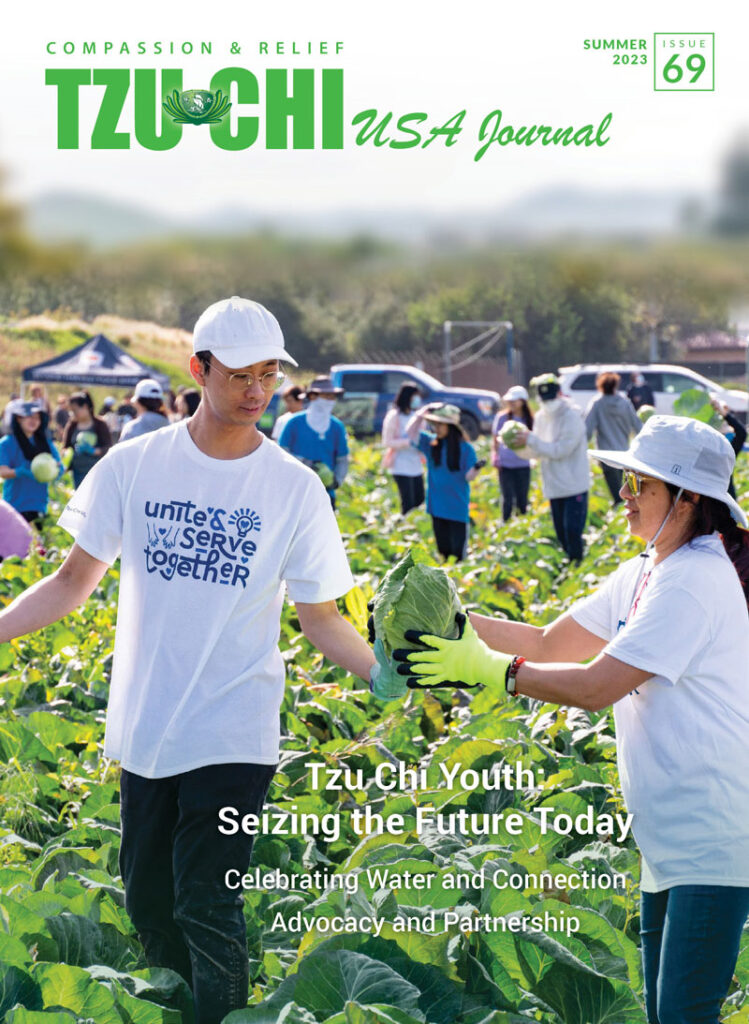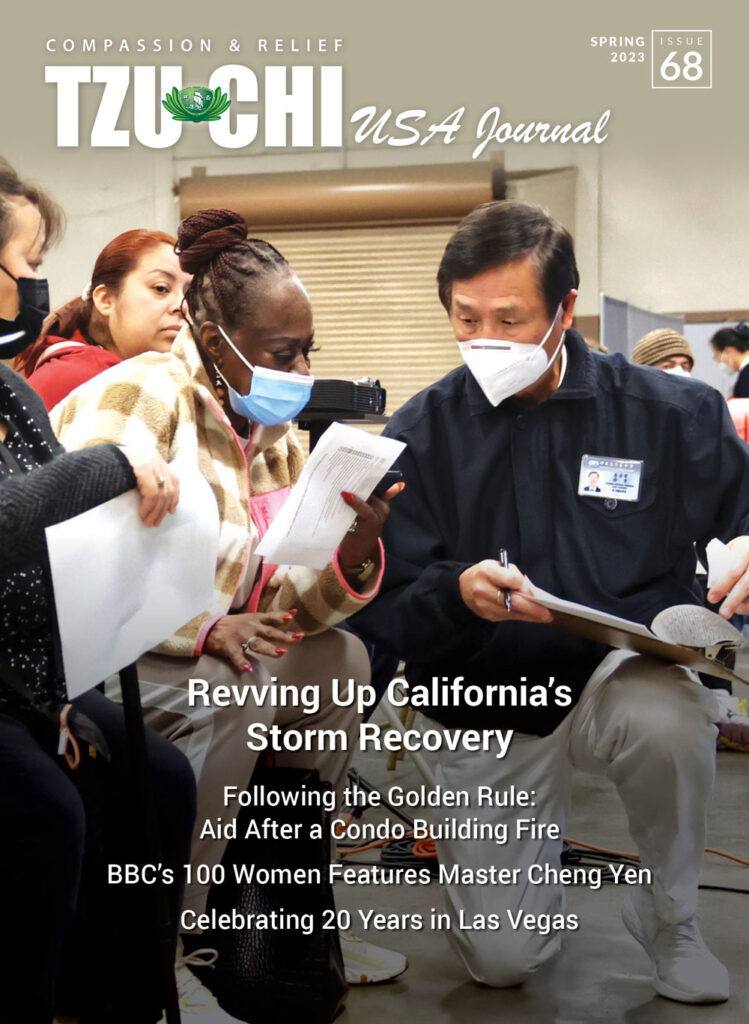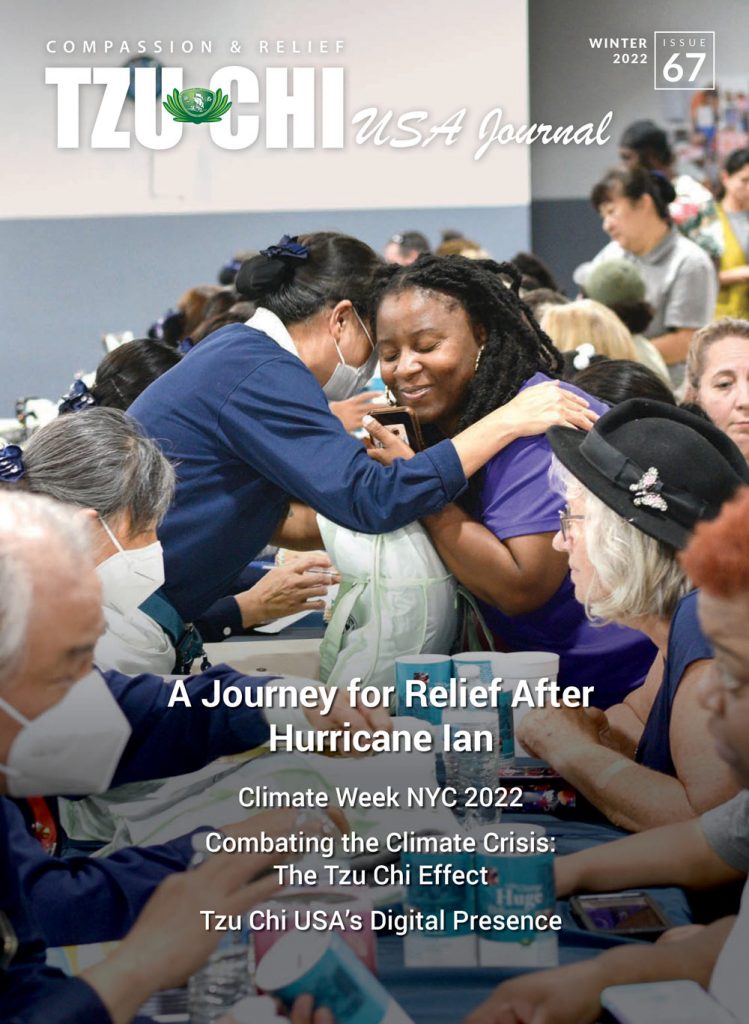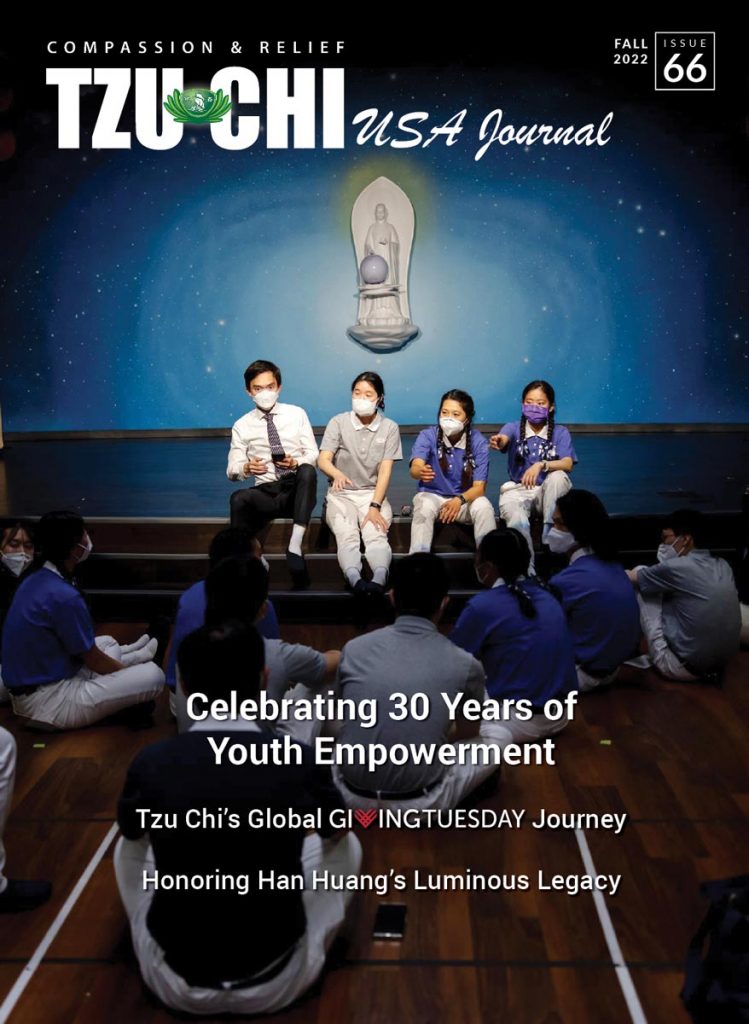Using Community to Combat the Climate Crisis:
How Tzu Chi Makes a Difference
Using Community to Combat the Climate Crisis: How Tzu Chi Makes a Difference
Written by Anna Sipek
Published #67 | Winter 2022 Issue
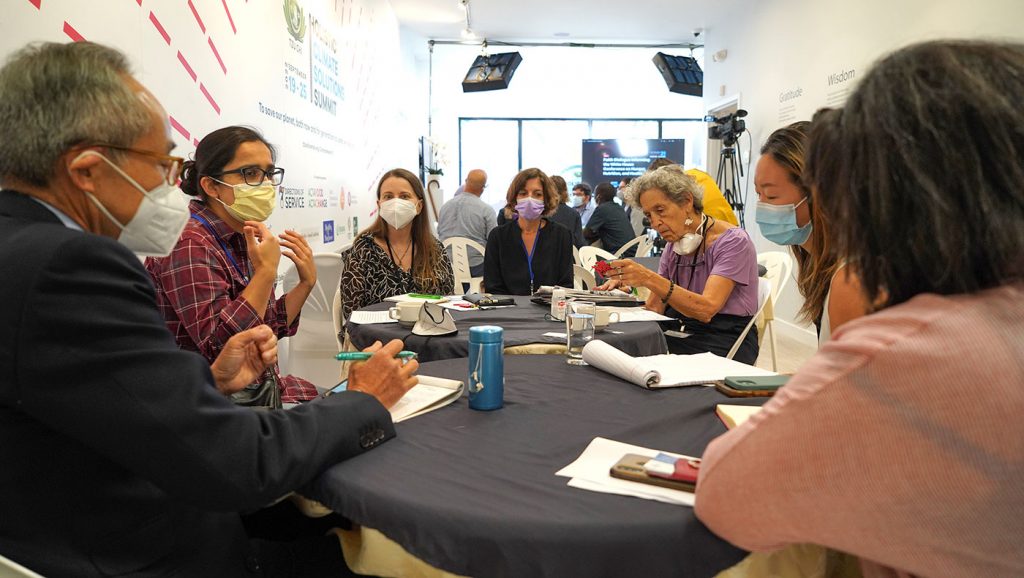
Faith leaders discuss the best options for combating hunger and broken food systems on Day 3 of the Holistic Climate Solutions Summit. Photo/Hector Muniente
SHARE
In September 2022, the city of New York came together to get serious about the climate crisis for the 14th annual Climate Week NYC. Held in conjunction with Climate Week and the UN General Assembly, the Buddhist Tzu Chi Foundation’s Holistic Climate Solutions Summit held at the Tzu Chi Center for Compassionate Relief brought together some of the world’s brightest minds for a week of reflection, brainstorming, and action on some of the most important ecological issues to date.
From thought-provoking panels to community meals and healing sessions, each day was filled with events to help model a better tomorrow, showcasing what is possible when those who value optimism, action, and respect join forces to save our planet.
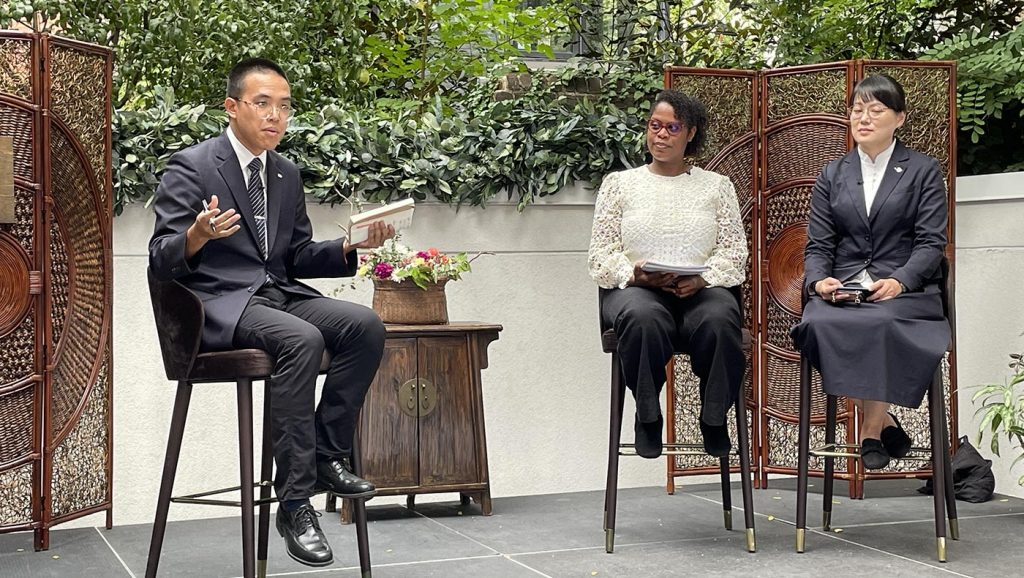
Building a Climate Activist Network
Over the course of seven days, the Holistic Climate Solutions Summit (HCSS) brought together all walks of life and presented an opportunity for this passionate and engaged group of people to create a network of climate activists. Regardless of their background, people from dozens of different nations, religions, and ethnicities found a space for their voices to be heard and complimented.
The first event of its kind, the summit wasn’t initially intended to be as large as it became. “It snowballed the more we spoke about it,” said Steve Chiu, principal organizer of the HCSS and a Tzu Chi Representative to the UN.
The more we talked about it, the more eager we were to create more and more events for the community at large because we were all passionate about combating the climate crisis and making the space for people to engage in conversations that not only bring together valuable perspectives but really take the time to create actionable steps as a community of climate activists.
Steve Chiu
Tzu Chi Representative to the UN
Throughout the event, activists, academics, and attendees echoed similar sentiments: There has long existed a disconnect between those who represent their people at an international level and those who they are representing.
”The leadership at the UN is not doing what it needs to do,” asserted Colette Pichon Battle, the Vision and Initiatives Partner for Taproot Earth. Eager to combat this epidemic of disconnectedness, the HCSS organizers put in the time to ensure the summit could be a place where people build connections and understanding.
“We wanted to make sure that we weren’t just having conversations in isolation on an international level, but bringing grassroots perspectives as well,” said Chiu at the end of the week. “With that reflection, we’ve been able to build coalitions, dissolve silos, and bring partners together in ways that extend into authentic dialogue to scheme how we can make a better future together.”
Engaging Within Local Communities
Thich Nhat Hanh once said that the next Buddha might not be an individual but a community – a community practicing understanding and loving kindness, a community practicing mindful living. With this in mind, the HCSS organizers recognized just how important it was to dedicate time to fostering an engaged and connected local community.
Importance of Local Engagement
With climate change bringing along ecological disaster after ecological disaster, it has become more and more evident that the worst impacts of the climate crisis are felt on a local scale and not a global one. From loss of resources to loss of culture, even loss of life, local communities need to know how to come together and rebuild when disaster strikes.
“When you look at communities and their ability to bounce back from disaster, the main determinative feature is social cohesion, social connectedness. It’s not how much money is thrown in, or how big the disaster is,” said Lucy Cummings, Senior Manager, Faith Sector Resilience, at the New York Disaster Interfaith Services who was a speaker during the panel on mutual aid.
This can be more difficult than many are prepared to admit. With much of the world relying on systems of production which act on a global and industrial scale, it isn’t unusual for the average person to feel totally divided from the communities they occupy space within. “We’re very good at problem-identifying in the climate crisis,” pointed out Isaias Hernandez, a speaker at HCSS, “but a lot of people don’t know about those local solutions that are happening on the ground.”
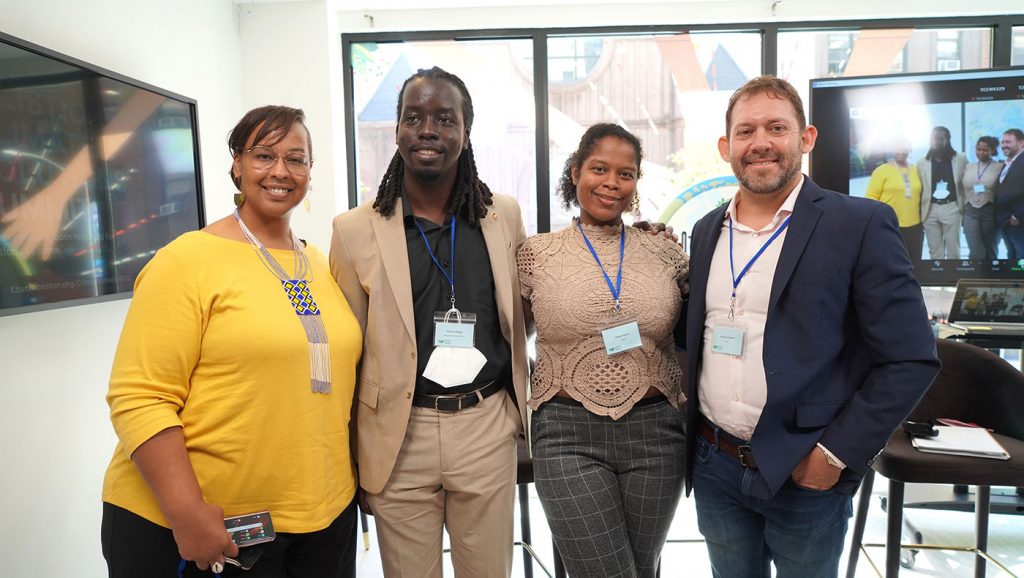
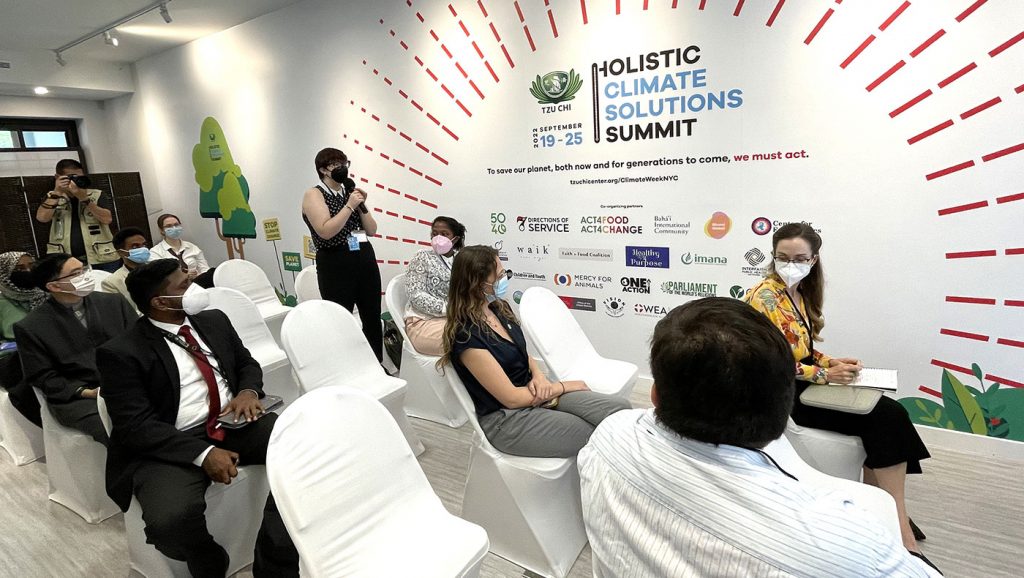
An environmental educator and organizer also known as @Queer Brown Vegan on TikTok, Hernandez knows first hand the importance of empowering people on a local level. Growing up in poverty, Hernandez and his community faced environmental injustice on the daily. He found that while institutions take a long time to act, communities armed with knowledge have the ability to create meaningful and expedient changes.
A lot of people, if they get to know about local issues and local solutions that are happening, that also helps them navigate and gives them the power to understand that they can move through this crisis together, rather than learning through global content issues.
Isaias Hernandez
Environmental Educator & Youth Activist
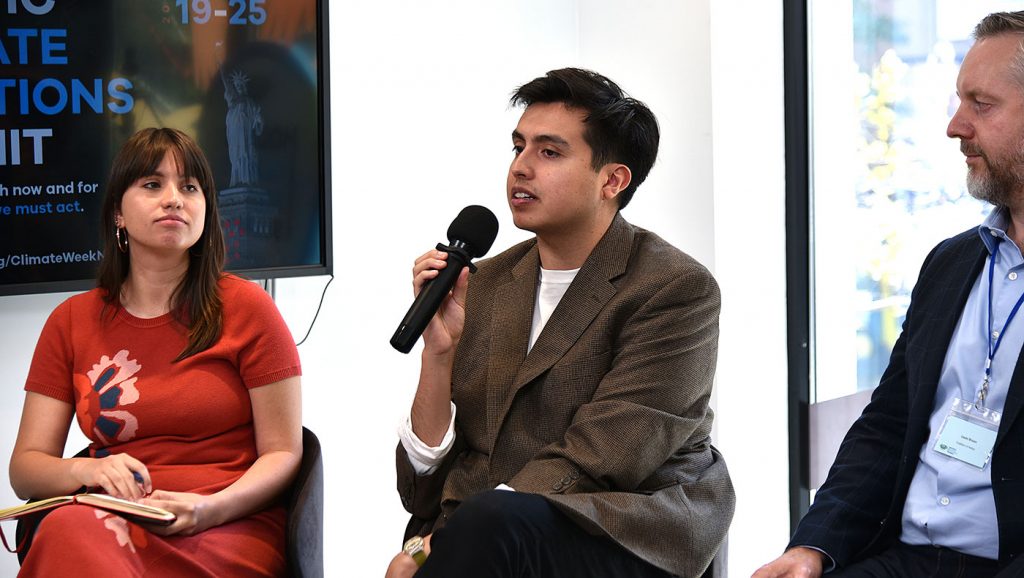
Local Communities in Action
“All of us live in a time where communities are being dismantled and disintegrated,” explained Dr. Colette Pichon Battle, so envisioning a community-focused future can be difficult. “Words like love and community and collective and cooperative, these are words that we have not been taught to respect,” she continued. “They are words that we have been taught need to be dominated, but they are, in fact, the only weapons that we have.”
Rebuilding local communities isn’t always simple, but social justice leader and organizer Dr. Pichon Battle suggests fellow climate activists bring people into the party rather than to the struggle. In other words, before asking others to fight for a cause, bond with them and make sure they have something worth fighting for.
Throughout the summit, the Tzu Chi Center held various community-building activities in order to forge connections that organizers hope, in the long run, will be some of the strongest defenses against the climate crisis. From community meals to group therapy to cooperative art programs, these activities engendered a sense of unity and energy among those attending.
“For me, I think that spaces like [the Tzu Chi Center] are not common spaces – where people are allowed to come and just feel a sense of community. I think this is something that really needs to be kept going,” said one participant, Desmond Alugnoa, Co-Founder of Green Africa Youth Organization.
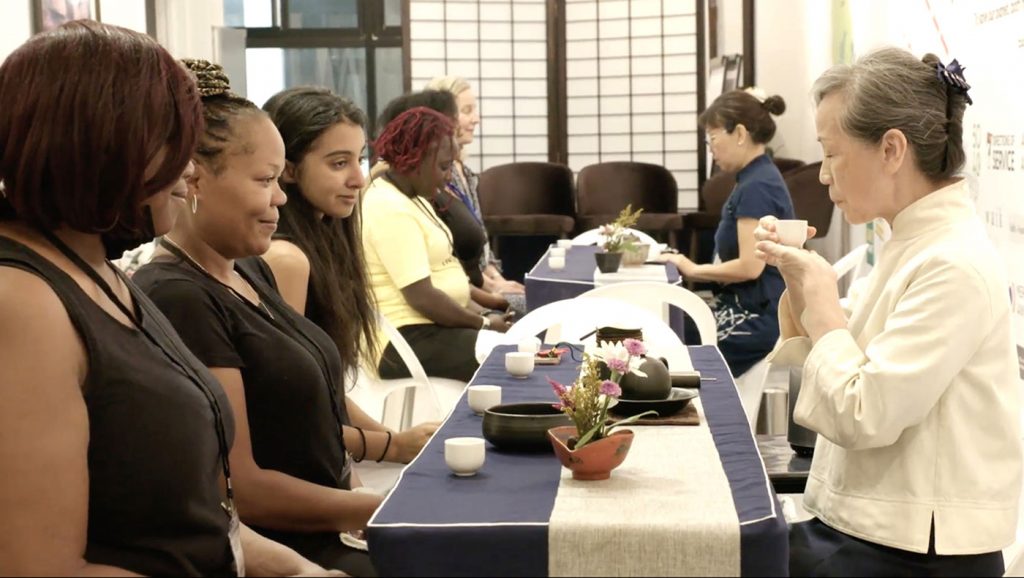
The Tzu Chi Effect at Work
Many attendees applauded the Buddhist Tzu Chi Foundation and its volunteers, who were integral to the success of the event, for their emphasis on togetherness and respect.
“[Love] is so embodied in this space,” said Reverend Dallas Conyers, a co-organizer of the HCSS. “The way the volunteers work not only amongst each other, but with the people visiting the space, makes all the difference in the world when talking about a topic that most people usually associate with doom and gloom.”
As a group, Rev. Conyers noted, Tzu Chi volunteers modeled the very qualities that are necessary for a resilient and ecologically sound future: “[Their love] invigorates and energizes. It gives new perspectives on how we should do this work and why we should do this work.”
Finding Community on a Global Scale
As the summit came to a close, participants and organizers alike reflected on how the HCSS might have impacts outside of the Tzu Chi Center. The experts seemed to all agree that the HCSS, by providing a space for solidarity and mutual understanding, brought everyone involved one step closer to an informed and empowered global population, equipped with the tools it needs to fight for the planet.
“No matter where we are, what means we have,” concluded organizer Steve Chiu, “there are ways that we can give to this movement to strengthen it, heal our planet, and heal ourselves.”
SHARE:

